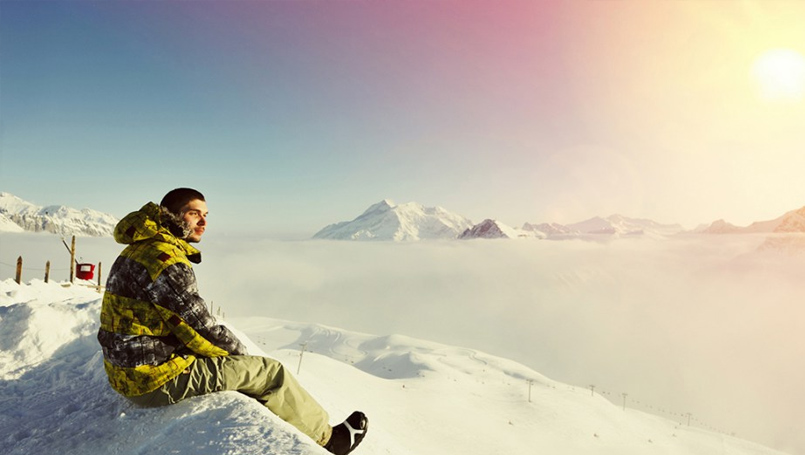
We’ve talked about the importance of wearing sunscreen before, but that might only cross your mind during the warm summer months.
Winter has snuck up on us again this year, and you might have traded in your swimsuits and flip-flops for heavy parkas and snow boots. But should we pack away the sunscreen? Experts recommend that you should actually be wearing sunscreen throughout the year, even in the winter!
“Sunscreen should be worn every day you plan on spending any time outdoors, all year round,” explains Brian Kopitzki, D.O., dermatologist at Beaumont Hospital, Farmington Hills. “Temperature should not be a factor in choosing if you use sunscreen or not.”
Snow Intensifies the Sun’s Rays
Snow and ice can reflect up to 90% of UV rays. These harmful rays can not only can cause skin cancer, but are also the source of about 90 percent of all wrinkles, according to the U.S. Environmental Protection Agency. This winter, don’t let those clouds fool you; the sun’s reflection can be incredibly powerful.
Winter Sports are Hard on the Skin
It is common to associate winter with frostbite, but people may be unaware that UV rays can be every bit as damaging on the slopes as they are on a warm and sunny beach! Winter sport enthusiasts are at an even increased risk of sun damage, since UV radiation exposure increases 4 – 5% with every 1,000 feet above sea level.
Dr. Kopitzki says any area that can be exposed in important to apply sunscreen. To properly prepare, make sure you apply sunscreen to your face, neck ears, hands and lips. It’s also recommended that you apply every 3-4 hours if you’re going to be outdoors for an extended period of time. Don’t forget the sunglasses as well!
Winter’s Thin Ozone Layer
The ozone layer acts as Earth’s sunshield, absorbing harmful UV rays. However, the ozone layer is actually at its thinnest in the winter. Windburn and sunburn also act together during the winter months. The freezing temperatures and vicious winds that leave your skin dry and agitated allow for UV rays to have a better shot at your skin. Wearing sunscreen on exposed skin, especially when the sun’s rays are strongest between 10 a.m. and 4 p.m., will keep you protected from these damaging rays.
“While there are less direct UV rays in the winter, there is significant reflection of these rays which can still easily cause sunburn. Even if you don’t get burned, the UV rays are still at work causing wrinkles and aging the skin,” adds Dr. Kopitzki.
He also recommends an SPF of at least 30. “With SPF 30, 97% of the harmful UV rays are blocked so anything higher than that leads to diminishing returns.”
Be sure to protect yourself this winter like you would at the beach! Your skin will thank you for wearing and bringing sunscreen with you when you plan on being outdoors for an extended amount of time!
